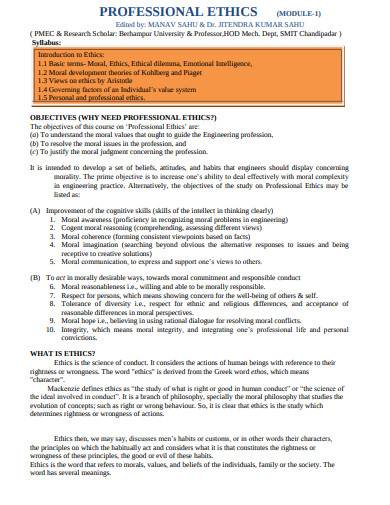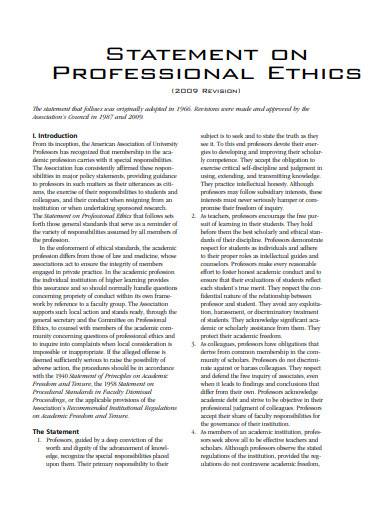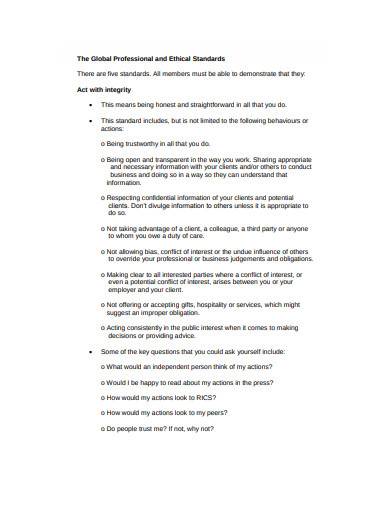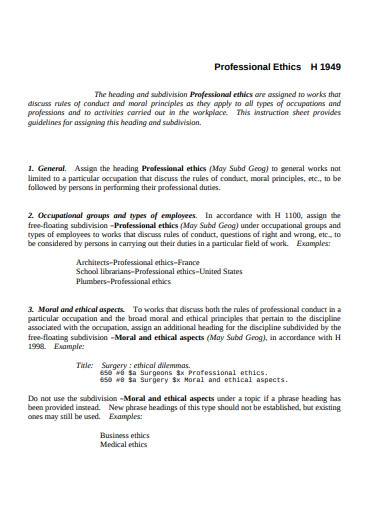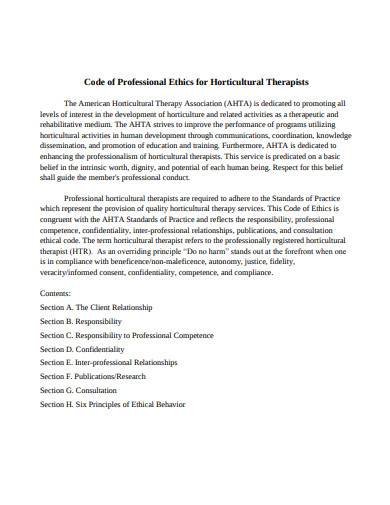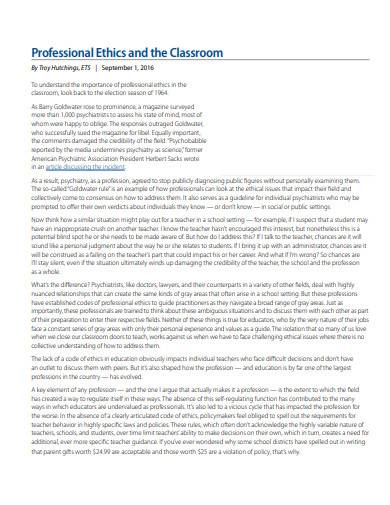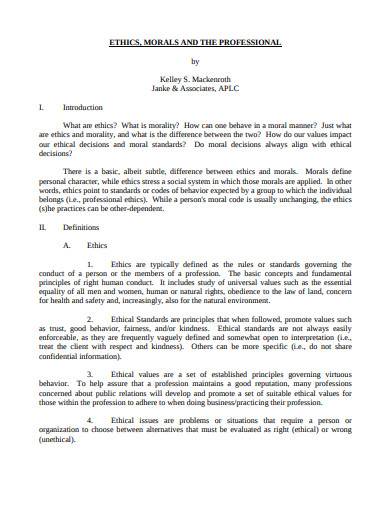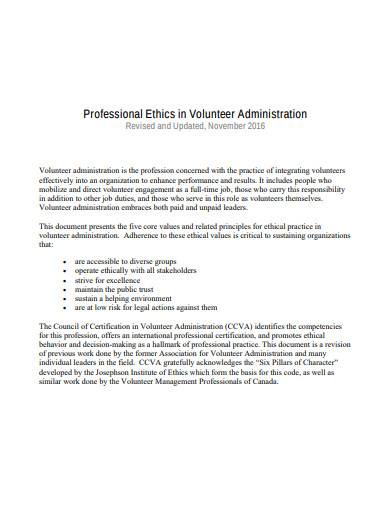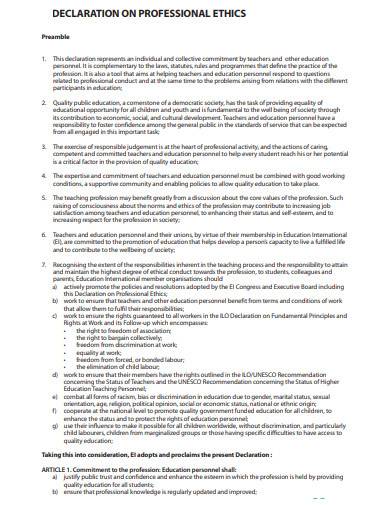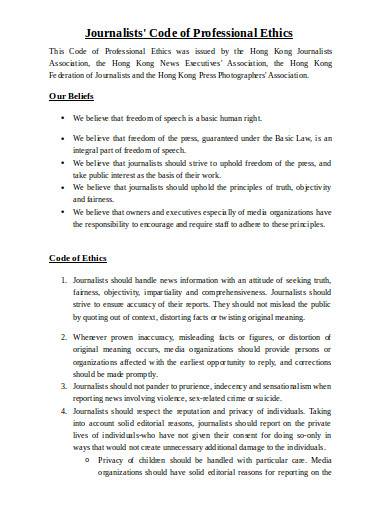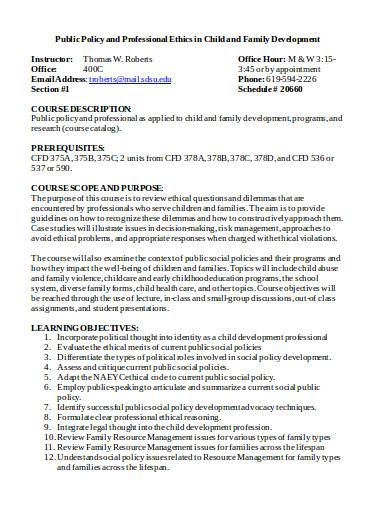One of the 27 biggest tech scandals of 2019 that Business Insider posted on December 30, 2019, is the accusation of the CEO of Amazon, Jeff Bezos against American Media Inc., and its CEO, David Pecker. According to Bezos, the media company and its CEO blackmailed him with photos where he is naked. If this accusation is true, then we can consider it as professional unethical behavior. Another example of breaking the code of professional ethics is if a professional engineer certifies an unsafe business project proposal as safe in exchange for a big amount of money.
What is Professional Ethics
Professional ethics is a part of a vast array of applied ethics, among with customer ethics and business ethics, that concerns the ethical principles, which govern the behavior of a professional. It provides the standards of how a person should act towards other people and his environment. Originally, the word professionalism applies only to religion-related activities, which put limitations on the scope of professional ethics. During 1675, however, people started to use it to newly-then considered professions, such as military profession, law, nursing, accounting, and medicine. Later on, it began to apply to the engineering professions such as computer engineering and civil engineering, healthcare, information technology, and teachers.
Principles of Professional Ethics
Professional ethics applies to any profession. Other professions may have their professional ethics. For example, medical doctors adhere to the Hippocratic oath. However, you should also know that all of them follow the same general principles, such as trustworthiness, respecting and doing good to others, loyalty, honesty, following the law, accountability, and avoiding harm to others.
10+ Professional Ethics Samples
Download the following examples to know more about professional ethics for free. These zipped files are available in PDF format.
1. Professional Ethics Sample
2. Statement on Professional Ethics Template
3. Global Professional and Ethical Standards Sample
4. Basic Professional Ethics Sample
5. Code of Professional Ethics Template
6. Professional Ethics in the Classroom Sample
7. Ethics, Morals and the Professional Sample
8. Professional Ethics in Volunteer Administration Sample
9. Declaration on Professional Ethics Sample
10. Journalists Code of Professional Ethics in DOC
11. Public Policy and Professional Ethics in DOC
How to Develop a Good Professional Ethics
As a professional who works in an organization, you have to ensure that everything you do is following professional ethics. However, just like professional writing or professional business proposal development, there are chances that you will unintentionally commit unethical behavior. Thus, we included the following simplified essential tips, which you can easily remember.
1. Be Punctual All the Time
Make it habit to go to work or finish the assignments ahead of time. By doing so, you will have time to get ready before you start working. You will also have extra time to say hello to your officemates or check your phone for important updates. Using a personal planner and homework planner may help you adhere to this good ethical behavior.
2. Be Professional
In the office, extra activities, such as gossiping or regularly checking your Facebook newsfeed can be tempting, especially if the team leader or the manager is not around. In developing your reputation, you must do what is expected of you to do. Making these activities a habit may affect your productivity and performance, which will create a negative impact on your performance evaluation.
3. Discipline Yourself
At times, an employee gets distracted by a colleague to do unnecessary activities and procrastinate on doing their tasks, which may result in delayed completion of a job. In some cases, the workers rush the job, which can make it prone to mistakes. Aside from that, it can lead to poor individual performance. As a professional employee, it is crucial to set a smart goal to finish the tasks on time.
4. Maintain Work-Life Balance
Focusing on your job is a good habit. However, it does not mean that you have to stare at your computer all day. Take a break periodically. Take care of yourself and make time for the other aspects of your life. Your job at the office is not the sole area of your life. Eat, rest, and go home on time. By maintaining a work-life balance, you will go to work with the right mood and energy.
It is crucial to apply professionalism to every action that you take to maintain a sound workplace environment. Additionally, it will allow you to keep your reputation and encourage the public to seek your professional services.
Related Posts
Weekly Schedule Samples & Templates
Contractual Agreement Samples & Templates
FREE 9+ Amazing Sample Church Bulletin Templates in PSD | PDF
Sample Business Card Templates
Sample Cashier Job Descriptions
Questionnaire Samples
FREE 10+ Sample HR Resource Templates in PDF
FREE 10+ HR Consulting Business Plan Samples in MS Word | Google Docs | Pages | PDF
FREE 49+ Sample Job Descriptions in PDF | MS Word
FREE 16+ Nonprofit Budget Samples in PDF | MS Word | Excel | Google Docs | Google Sheets | Numbers | Pages
FREE 13+ Academic Calendar Templates in Google Docs | MS Word | Pages | PDF
FREE 10+ How to Create an Executive Summary Samples in Google Docs | MS Word | Pages | PDF
FREE 23+ Sample Event Calendar Templates in PDF | MS Word | Google Docs | Apple Pages
Company Profile Samples
FREE 10+ Leadership Report Samples [ Development, Training, Camp ]

